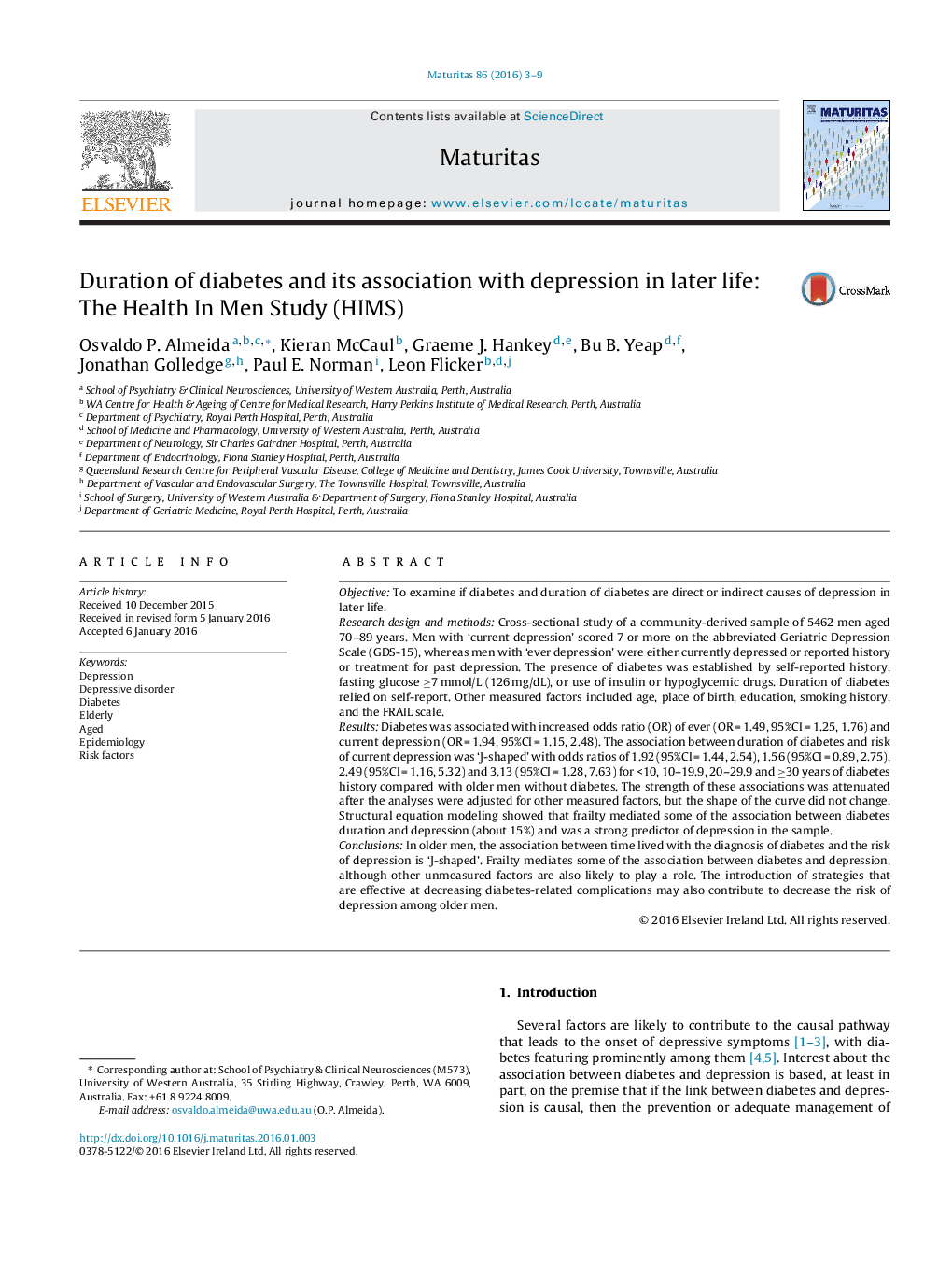| Article ID | Journal | Published Year | Pages | File Type |
|---|---|---|---|---|
| 1917043 | Maturitas | 2016 | 7 Pages |
•Prevalent diabetes has been associated with depression, particularly later in life.•It is unclear if the relationship between diabetes and depression is causal.•We found that the association between duration of diabetes and depression is “J-shaped”.•Frailty mediates some of the association between diabetes and depression.
ObjectiveTo examine if diabetes and duration of diabetes are direct or indirect causes of depression in later life.Research design and methodsCross-sectional study of a community-derived sample of 5462 men aged 70–89 years. Men with ‘current depression’ scored 7 or more on the abbreviated Geriatric Depression Scale (GDS-15), whereas men with ‘ever depression’ were either currently depressed or reported history or treatment for past depression. The presence of diabetes was established by self-reported history, fasting glucose ≥7 mmol/L (126 mg/dL), or use of insulin or hypoglycemic drugs. Duration of diabetes relied on self-report. Other measured factors included age, place of birth, education, smoking history, and the FRAIL scale.ResultsDiabetes was associated with increased odds ratio (OR) of ever (OR = 1.49, 95%CI = 1.25, 1.76) and current depression (OR = 1.94, 95%CI = 1.15, 2.48). The association between duration of diabetes and risk of current depression was ‘J-shaped’ with odds ratios of 1.92 (95%CI = 1.44, 2.54), 1.56 (95%CI = 0.89, 2.75), 2.49 (95%CI = 1.16, 5.32) and 3.13 (95%CI = 1.28, 7.63) for <10, 10–19.9, 20–29.9 and ≥30 years of diabetes history compared with older men without diabetes. The strength of these associations was attenuated after the analyses were adjusted for other measured factors, but the shape of the curve did not change. Structural equation modeling showed that frailty mediated some of the association between diabetes duration and depression (about 15%) and was a strong predictor of depression in the sample.ConclusionsIn older men, the association between time lived with the diagnosis of diabetes and the risk of depression is ‘J-shaped’. Frailty mediates some of the association between diabetes and depression, although other unmeasured factors are also likely to play a role. The introduction of strategies that are effective at decreasing diabetes-related complications may also contribute to decrease the risk of depression among older men.
